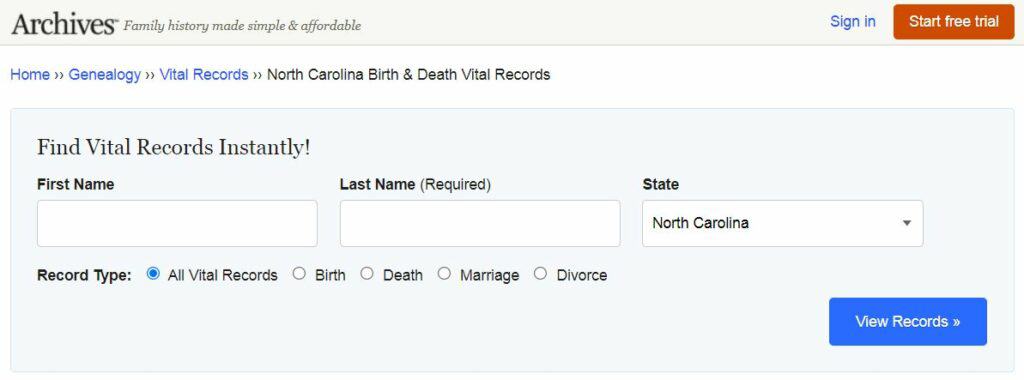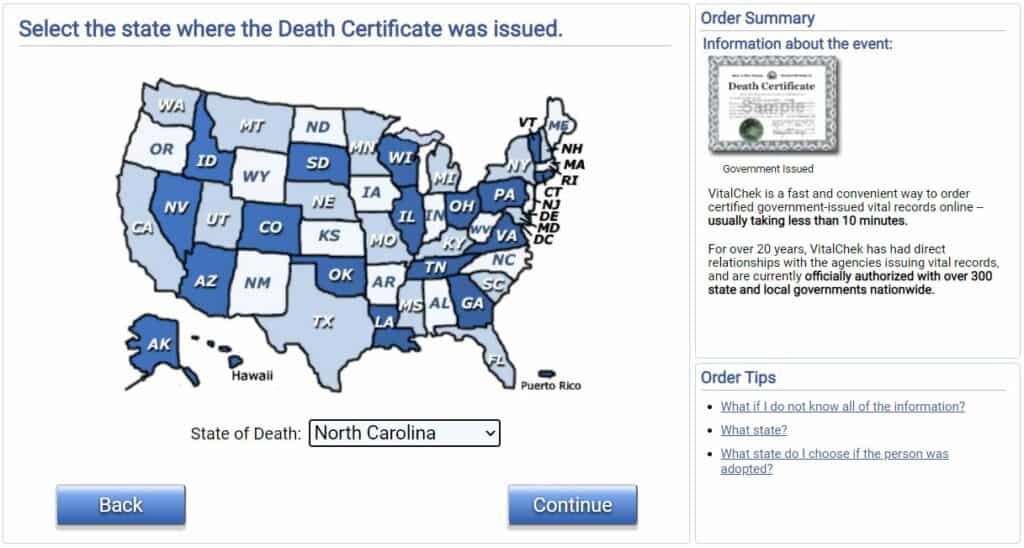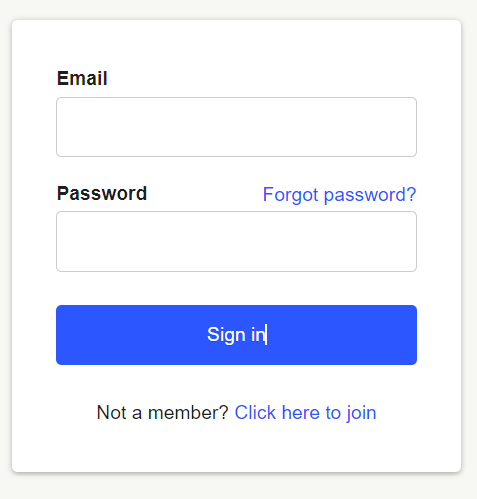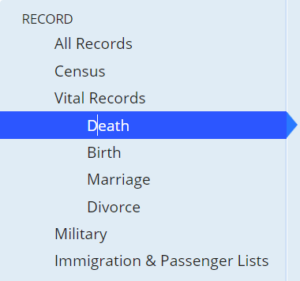
Search for Death Records in North Carolina
Free North Carolina Death Records Lookup

We receive referral fees from partners (advertising disclosure)
The information we provide you is free of charge and a result of extensive research by our product experts. We use affiliate links in our site that provide us with referral commissions. While this fact may not influence the information we provide, it may affect the positioning of this information.


Our in-depth guide to the death records in the state of North Carolina will help you in getting death records in addition to providing you with relevant information about the deceased and the life they lived.

Death Records in North Carolina -
The Ultimate Guide 2025
- UPDATED April 2025
North Carolina Death Records
Records of deaths in the state of North Carolina date back to the year 1849. Prior to 1896, the Board of Education was in charge of keeping track of death records. Following this, the Board of Health was given the responsibility of keeping death records.

North Carolina Death Databases

North Carolina implemented a statewide death registration system in 1913, with widespread compliance achieved by 1917. These records are held in the possession of the counties.
Before 1913
Before 1913, neither the county nor the state kept a record of deaths. You must investigate alternative documents in order to determine the date and location of your ancestor’s death. Tax records, cemetery records, bible records, census statistics, probate records, and church records are examples of the types of records available.
1913 to the present
In 1913, the state of North Carolina began keeping track of those who died. Try the following databases to see if there are any fatalities that occurred during that time period. The North Carolina Deaths Databases, which includes name indexes as well as digital images, is a valuable resource for researchers. The person’s name, date of birth, and place of death are all included in the index entry above. If the image was not included, you can order a copy of the death record for a fee from the following locations: the North Carolina Department of Health State office and the county where the person passed away. The North Carolina State Archives has death certificates from 1913 to 1975, as well as an index from 1913 to 1979, which can be seen on their website. Through the Family History Library, you can obtain microfilm copies of death certificates from 1906 to 1994, as well as an index to death certificates from 1906 to 1967.
Death Certificates in North Carolina
Death records in the state of North Carolina are initially only available to the public 50 years after the date on which the record was filed, after which they become publicly available. Individuals who have passed away within the last 50 years are subject to certain restrictions when getting death certificates. There are several categories of people who are qualified to request a death certificate, as listed below:
- A registrant with whom the record is associated with
- Spouse
- Parents
- A descendant such as child / grandchild
- An individual with common ancestry (relative such as cousin, aunt, uncle, sibling or grandparent)
- Registrant’s legal guardian
- Agency / individual acting on the registrant’s behalf
- Legal representative to registrant’s estate

How to Find North Carolina Death Records
The following are a few simple steps to get you started:
Step 1: Register with Archive using your email address and password by visiting the website Archives.com.

Step 2: Navigation through the settings is made possible by using the buttons located at the very top of the user page. When you click on the “Search” button, the North Carolina state death records website will be loaded in your browser.

Step 3: Select “Vital Records” from the drop-down menu, then click on the “Death” button directly below it to complete the process. Because of this, the site excludes all other information and only displays death records, which can be downloaded after viewing them.

Step 4: You should include as much information about the dead as you can recall about them in the text box provided.

Step 5: In the ‘Location’ field, the state of North Carolina should be entered. As soon as you start typing, you will notice that the website will automatically find a match for you to view.
Step 6: Upon entering, you will be given with a list of records; you will need to navigate through the list until you locate the individual whose records you are interested in reading.
Alternative Sources for North Carolina Death Information
- Resourceful websites
- Obituaries
- Courthouses
- City Directories
- Tax Records
North Carolina Death Records FAQs
What is an Official Death Certificate?
Death certificates issued directly by the North Carolina state government or any equivalent entity are referred to as “official death certificates” or “official death certificates.” This document contains information on the individual, such as his or her name, physical address, date of birth, and date of death, among other things.
Are North Carolina Death Records Open to the Public?
According to the North Carolina Revised Statutes, vital records such as birth certificates, divorce decrees, marriage certificates, adoption certificates, death certificates, and other life records are available to anyone who has a direct relationship to the person whose name appears on the record, including third parties.
What Information Do I Need to Search for North Carolina Death Records Online?
- Deceased’s name
- Valid reason for death record request
- Death date
- County or city of death
- Valid proof of identification
Conclusion
The state of North Carolina is extremely particular about the accuracy of its tax and voting records, and this is reflected in its state records. As a result, they strive to keep a comprehensive death record up to date. Following the death of a person, tax collectors contact family members or next of kin to collect any unpaid state taxes that may be owed to the state. In the event of a probate proceeding, these death records will be extremely useful because your family members or next of kin will not have any difficulties in obtaining any legal information. With our comprehensive guide to North Carolina death record searches, you’ll be able to locate any type of record that you might require in a matter of minutes.
Disclaimer: OurPublicRecords mission is to give people easy and affordable access to public record information, but OurPublicRecords does not provide private investigator services or consumer reports, and is not a consumer reporting agency per the Fair Credit Reporting Act. You may not use our site or service or the information provided to make decisions about employment, admission, consumer credit, insurance, tenant screening, or any other purpose that would require FCRA compliance.

Copyright © 2025 · OurPublicRecords.org · All Rights Reserved